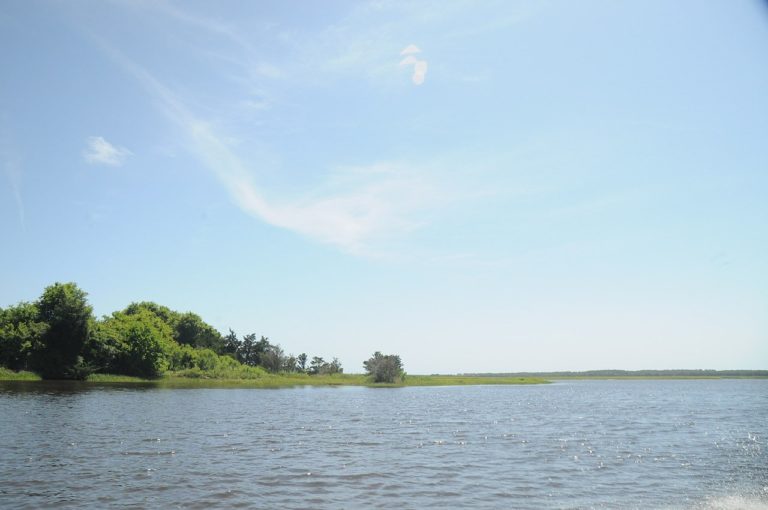Waterkeeper Groups Petition N.C. to Remove “Swamp Waters” Classification from Lower Cape Fear River
By: Waterkeeper Alliance

Waterkeeper Alliance and Cape Fear River Watch, represented by the Southern Environmental Law Center, petitioned today to remove North Carolina’s “swamp waters” classification from 15 miles of the Lower Cape Fear River flowing past Wilmington. The change would begin a process to reduce upstream pollution in the state’s largest and most industrialized watershed, pollution that includes an annual swine waste load equivalent to the human waste produced by the entire New York City metro area.
Over the objections of environmental groups, academic experts, and the U.S. Fish and Wildlife Service, the state reclassified the lower Cape Fear as “swamp waters” in 2015. EPA rejected North Carolina’s classification in July 2018, in part because the state failed to include data about the river’s velocity. While the lower Cape Fear is a fast-moving river, under state law, swamp waters are defined largely by their “very low velocities.” EPA also found that the state failed to consider, as required by federal law, whether water quality in the river could be improved.
When designating the lower Cape Fear as “swamp waters” in 2015, the state also failed to subject the watershed’s industrial animal operations to meaningful scrutiny. The agency relied on a model assuming these operations have no impact on water quality, despite evidence to the contrary.
Waste from industrial animal operations, when it enters a river, can reduce the dissolved oxygen and increase acidity, making it difficult for fish and other aquatic life to survive. This segment of the Cape Fear is a primary nursery area and provides critical habitat for endangered Atlantic sturgeon.
“The 5 million hogs and 21 million turkeys in the Cape Fear basin have polluted the water so badly, our river is at risk of choking to death,” said Kemp Burdette, Cape Fear Riverkeeper. “Reclassifying it as a swamp isn’t the answer; imposing pollution limits, as required by law, is ”
“This stretch of river has been impaired for twenty years,” said Will Hendrick, staff attorney for Waterkeeper Alliance and manager of its North Carolina Pure Farms Pure Waters campaign. “Under the Clean Water Act, the state has a legal obligation – an obligation it can’t dodge – to curb pollution.”
“The swampwater classification is not enforceable under federal law, as the EPA rightfully disapproved the change,” said Brooks Rainey Pearson, attorney at the Southern Environmental Law Center. “It is past time for the state to remove this erroneous classification from the books. The lower Cape Fear is simply not a swamp.”
As allowed under state law, the groups petitioned the director of the state’s Environmental Management Commission for the change. The next step is for the groups to present the petition at the March 13 meeting of the Environmental Management Commission.
**Photo by David Broad